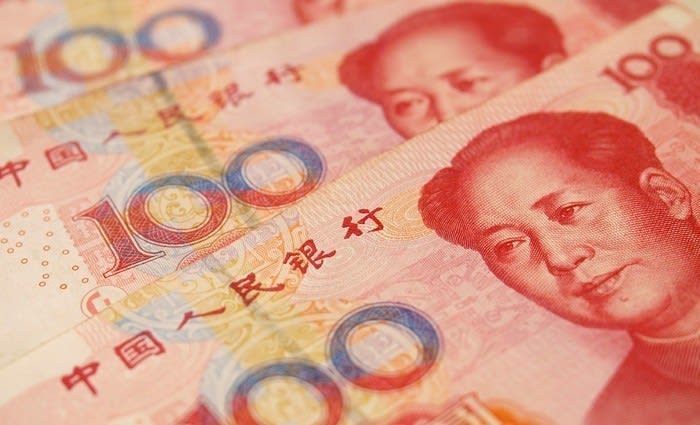China’s private companies are unjustly labeled as Communist Party plants: Colin Hawes
GUEST OBSERVER
Suspicion of Chinese corporations investing in Australia is not well justified when you consider the growth of private enterprise in China and the state of the Chinese Communist Party.
The fierce public debate about Chinese corporations investing in Australia is spurred by several misleading ideas about how much control the Chinese government has and its intervention with private businesses.
The fact is, massive privatisation has been ongoing in China since the 1980s, involving millions of business enterprises. Currently around 70 percent of Chinese industrial output is now produced by non-state controlled business firms, and over 80 percent of the industrial workforce in China is now employed in the private sector.
Private enterprises have been the growth engine of the Chinese economy, providing 95 percent of the growth of the urban workforce in the past three decades, and many now compete with state-owned conglomerates for brand recognition and size. Inevitably, private firms have started expanding overseas to find new markets and diversify their investments.
A common claim is that despite many Chinese investors being private corporations, they are still effectively controlled by the governmentthrough the Chinese Communist Party.
It’s true that if there are more than three party members within any organisation in China, those members have the right to set up a Communist Party branch. This includes employees of private corporations, and there are currently party branches within approximately 13 percent of private Chinese firms, a figure which rises to 53.1% among larger private firms.
But this does not necessarily result in party control over those corporations’ business decisions. Li Zhangzhu, the Deputy Secretary of the Chinese Communist Party branch within Yuanfang Group, a large private firm based in Henan Province, declared:
"What the boss of a private enterprise cares about most is business results. The boss will only pay attention to and support [Chinese Communist Party] building if it helps to promote the growth of the business and increases profits."
Academic Bruce Dickson found that attempts to build the Communist Party’s presence in the private sector actually promoted private business interests rather than those of the party’s leadership.
The Communist Party simply cannot afford to alienate private entrepreneurs because it relies on them to deliver continuing economic growth and provide employment. Without this the party would lose its legitimacy and power.
A recent survey of several hundred private Chinese corporations by Fan Xia of Shandong University found that if there was a time conflict between an activity scheduled by the firm’s Communist Party branch and their regular work duties, 91.8% of CCP members in private firms would not participate in the party activity unless their CEO gave them permission.
Another assumption is that the party and the central government control Chinese society with an iron fist). In fact, there is plenty of evidence of massive corruption and policy divisions that cast doubt on whether the party can even control itself.
In the current anti-corruption campaign, more than 447,000 Communist Party officials have been investigated since 2012, with over 230,000 of these criminally prosecuted in the courts, ranging from the lowest level apparatchiks right up to politburo (policy-making) members, Supreme People’s Court justices and military generals.
Some senior Communist Party officials have been convicted for accepting bribes totalling tens of millions of dollars, according to Chineseand Western media sources.
Many of these bribes were paid in return for promotions within the Party hierarchy or government bodies. For instance, 45 representatives were expelled from the National People’s Congress in September 2016, after evidence emerged that they had used bribery to obtain their nominations; and 454 delegates (out of 612) were expelled from the Liaoning Provincial People’s Congress for similar reasons.
Research suggests that the party has lost control over its own personnel system and cannot guarantee that its officials are competent or honest. It also explains why a government communique in 2016 referred to many “dangers” that may threaten the very existence of the party, “including the slacking of officials, incompetence, isolation from the people and corruption”.
Contrary to the popular misconception that China is a highly centralised state, few laws and policies are enforced in a uniform way throughout the country.
For example, in Shenzhen, a Southern Chinese city with over 10 million people, half the buildings within the city have no legal titles and have been rented or sold to millions of people illegally. Relying on the illegal private housing market was the only way for the local government to provide sufficient housing for the millions of migrants arriving in Shenzhen from other parts of China over the past three decades.
This example of decentralised decision-making also counters another assumption about large-scale investment by private Chinese firms in Australia - that it’s part of a “unified” Chinese government strategy to undermine our national security.
In fact, outward foreign investment from China has become increasingly decentralised, so that the vast majority of investments under US$1 billion are now approved at provincial or municipal government levels. There is also a lot of competition between different Chinese regions and provinces in seeking the economic benefits of investment overseas.
There needs to be more acknowledgement of the complexity of the influences at play within Chinese corporations rather than just jumping to the conclusion that all are controlled by the Chinese government. Especially if these businesses are bringing economic benefits by investing in Australian businesses and infrastructure.
Colin Hawes is associate professor, University of Technology Sydney and author for The Conversation. He can be contacted here.
